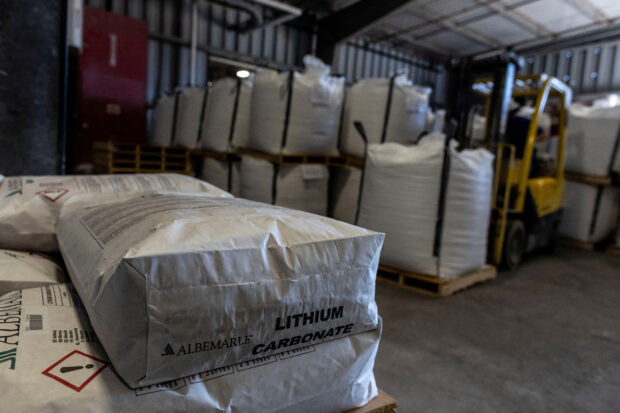
LONDON – Global export restrictions on critical materials have grown more than five-fold over the last decade, the OECD said on Tuesday, potentially impeding governments’ efforts to reduce carbon emissions.
About a tenth of the global value of exports of raw materials, such as lithium, cobalt and rare earths, needed for electric vehicles and renewable energy, have faced at least one export restriction measure, a study by the Organization for Economic Cooperation and Development (OECD) found.
“The overall global economic impact of these measures can thus be sizable,” it said.
China, India, Argentina, Russia, Vietnam, and Kazakhstan were the top six countries in terms of number of new export restrictions during 2009-2020, the scope of the study.
The measures often took the form of export taxes instead of caps on quantities, which are generally prohibited under World Trade Organization rules while taxes are not, the report said.
Restrictions grew faster on upstream segments, such as ores, than on other segments, it added.
Production of critical raw materials has become more concentrated in the last decade, with China among the top three producers of six out of the 10 most concentrated materials, the study said.
The European Union last month published its strategy to ensure its industry can compete with the United States and China in making clean-tech products and accessing raw materials required for the green transition.
https://business.inquirer.net/393429/us-japan-strike-trade-deal-on-electric-vehicle-battery-minerals


